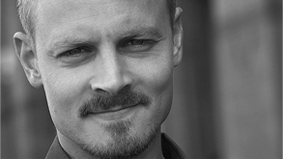There was an Economist piece on Innovation a while back on Vijay Govindarajan and Chris Trimble’s new book “The Other Side of Innovation: Solving the Execution Challenge”, dealing largely with innovation in established companies. There’s much focus on ideas generation these days, perhaps more so than on what innovation really is: the commercialisation of those ideas. The perspiration stuff, not the inspiration stuff.
The piece makes some good points about the perils of an unfocused approach to innovation that spreads resources thinly and indiscriminately. And how unnatural innovation (by definition disruptive, unpredictable, blurry) is for established businesses that are organised and optimised for efficiency, desirous of predictability and repeatability, and typified by the practice of breaking tasks down into component parts, setting targets and holding employees accountable.
The solution, according to Govindarajan and Trimble is for companies to build dedicated ‘innovation machines’ that, rather than becoming isolated skunk works, are integrated with the rest of the business, share some staff and benefit from wider company resources, are targeted against specific criteria (like the ability to show learning from mistakes), and yet are free to bring in people from outside who are more likely to challenge convention.
All very good points. But my problem with it all was with the terminology. Calling any process an ‘Innovation Machine’ seems like a godawful way of describing what is at heart a very human process.
One of the interesting aspects of this piece about Mark Pincus, CEO of the phenomenally successful Zynga, was his description of what he looks for when he hires people. In short: people who are entrepreneurial and resourceful; who are good at creative problem solving and can drive toward an outcome; managers with humility, who are not just good at delegating and organising other people. Sadly, in my experience, it is just these kinds of people that rapidly become mavericks within a certain type of large organisation.
The problem with mavericks is that they just want to do stuff. They rush into things, sometimes without bothering to follow established protocol, or forgetting to give due respect to organisational hierarchy.
But the thing about mavericks in organisations is that they are often the ones who are more focused on the interesting stuff going on outside the organisation rather than managing upwards within. They start fires. They have an opinion. They are bothered enough to go out of their way to make things better. They are passionate. I’ve long believed that there are two types of people in work – those who do the job they were employed to do and those who set out to make the job better. The latter are rare indeed.
When we think about entrepreneurialism, we think about start-ups, small business, new companies. Yet it is a quality that is inherent to types of people, not types of organisation. Entrepreneurs tend to see solutions rather than problems. I liked how Emily Bell, erstwhile director of digital content at The Guardian and incoming director of the Tow Center for Digital Journalism at Columbia in New York, described how in the need to reboot journalism, “digital technologies are central to the solution, and not as many would have them, the source of the problem”.
Yet in-spite of the fact that it is surely one of the most essential qualities required by modern business, it is one that often struggles to survive in incumbent habitats that do not value the inefficiency of an uncommon idea. Organisational ritual and process is the biggest killer of entrepreneurialism. Mavericks in large organisations stand out, stick themselves in the firing line, and (sadly) often get shot for their trouble.
As Mark Pincus says: “The best companies today value great entrepreneurs and work hard to retain them and motivate them”. Sadly, this all too often doesn’t happen. I know one thing. If I was CEO of a large organisation, I’d far rather have the problem of channeling raw enthusiasm than of desperately trying to pull new ideas out of a culture that kills them.
Original Post: http://neilperkin.typepad.com/only_dead_fish/2010/10/mavericks.html




